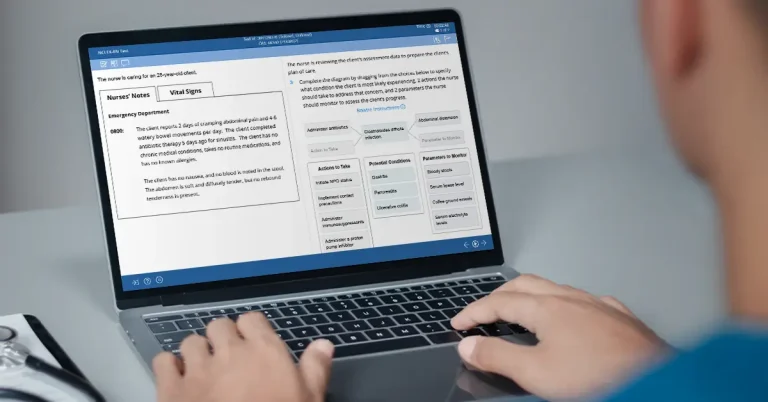By Teresa Mauk, MSN, RN
With medical advances, patients are living longer with multiple health issues and chronic illness; therefore, it is more important than ever that all members of the healthcare team work together to provide patients with holistic care.
Effective collaboration among all team members is necessary to keep patients safe as they traverse through our complex healthcare system, which makes interprofessional education increasingly crucial.
According to the World Health Organization (WHO), “ Interprofessional education occurs when students from two or more professions learn about, from, and with each other to enable effective collaboration and improve health outcomes” (WHO, 2010, p. 7).
In 2003, the former Institute of Medicine (now National Academy of Medicine) cited teamwork as a primary factor in transforming nursing education and practice, and in 2011, recommended that all members of the healthcare team be full partners.
The Interprofessional Practice and Education Collaborative (IPEC), which included representatives from the American Association of Colleges of Nursing and experts from 5 other disciplines, was established in 2011 to promote IPE and team-based health care. IPEC identified 4 core competencies of IPE that include: values and ethics, roles and responsibilities, interprofessional communication, and teams and teamwork (Interprofessional Education Collaborative Expert Panel, 2011, p. 16).
IPE experiences should be integrated throughout the curriculum and focus on partnership, communication, individual scopes of practice and expertise, collective knowledge, and building relationships that are founded on respect.
Students who participate in IPE experiences develop a deeper understanding of the role and scope of practice of other team members, increased comfort in sharing pertinent information or seeking help from team members, and enhanced problem solving and communication skills.
Momentum is needed in the shift from traditional, isolated approaches in nursing education to pedagogies that embrace IPE and promote collaborative working relationships between nursing and other members of the healthcare team (e.g., physician, respiratory therapy, physical therapy, occupational health, social work, dietician).
Educators from nursing and other healthcare professions would be advised to work collaboratively to develop team-based learning experiences that require students to work together utilizing shared decision-making.
There are many opportunities for integrating the four IPE core competencies throughout classroom content and into simulation and clinical experiences, such as:
- Highlighting the unique roles of the interprofessional team members when teaching concepts
- Providing opportunities for learners to interview or shadow interprofessional team members and provide reflection about their roles and collaborative contributions
- Inviting interprofessional team members to be guest speakers (in person or recorded), outlining their role and collaborative contribution related to topics or concepts
- Creating small groups of learners and interprofessional team members to work collaboratively on a case study or simulation
- Engaging in a community service project that includes learners and interprofessional team members
A toolkit is available from The National League for Nursing to guide programs of nursing in integrating IPE into the nursing curriculum:
NLN toolkit
Skills acquired through IPE experiences will facilitate a smoother transition to practice for nursing graduates, enabling them to navigate the increasing acuity and complexity of nursing in acute care environments, or function effectively in the growing outpatient, clinic, and community environments.
References
World Health Organization. Framework for Action on Interprofessional Education and Collaborative Practice. Geneva, Switzerland: World Health Organization; 2010.
Interprofessional Education Collaborative Expert Panel. Core Competencies for Intercollaborative Practice. Washington, DC: Interprofessional Education Collaborative Expert Panel; 2011.





